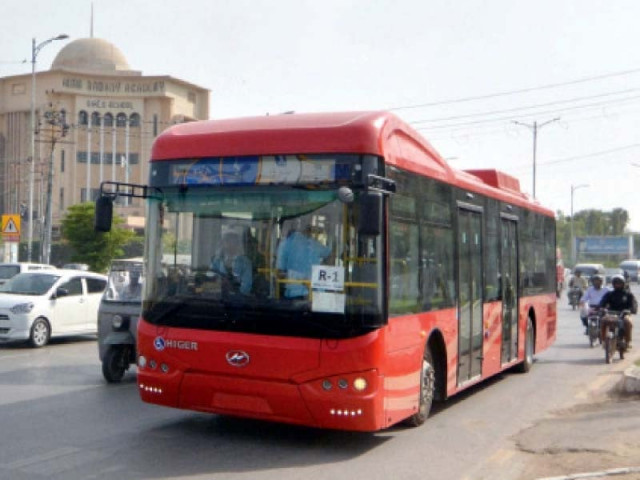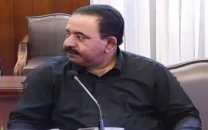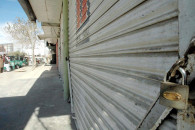Commuters hustle for seats in public transport
Overcrowding of buses across multiple busy routes creates inconvenience

As Karachi continues to attract a large segment of the working age population for employment purposes, the public transport system fails to keep up, as a growing number of commuters on the Peoples Bus Service leaves no room for commuters to breathe let alone move.
Initiated in 2022 by the Sindh government, the Peoples Bus Service (PBS), which operates through 11 lines covering 42 kilometers, starts its route from Khokhropar and passed through Saudabad, Malir Halt, Drigh Road Station, Shahrah-e-Faisal, Karsaz, Karachi Press Club, and the Arts Council of Pakistan Karachi before ending at the Port Tower Complex.
In recent times however, the overcrowding of the limited number of buses across multiple busy routes especially the Shahrah-e-Faisal, Gulshan-e-Hadeed and Merewether Clock Tower, has created much inconvenience for regular commuters, who in the absence of available seats have to stand unsteadily for long durations in the congested and poorly ventilated buses.
“The number of passengers travelling through the buses exceeds their capacity. As a result of this overload, the majority of passengers are unable to find a seat and have to stand throughout their journeys,” observed Muhammad Javed, a commuter, who went on to add that a lot of passengers including women and the elderly had no option but to sit on the floor or occupy the steps at the end of the bus.
Javed’s observation was backed by Abdul Saad, a senior citizen travelling through the overflowing bus at Gulshan-e-Hadeed, who was unable to find a seat for himself and out of his exhaustion had to sit uncomfortably at the steps of the bus.
Similarly, Shahida Parveen, a regular commuter taking route one from Saddar to Clifton highlighted the fact that sometimes the bus was so congested that there was not even enough space to sit on the floor or at the steps. “During the rush hour, people are crammed together tightly, leaving no room for me to even stand let alone sit,” claimed Parveen, who narrated an incident where the bus was so overcrowded that the conductor was unable to close its doors.
Expanding on the state of congestion inside the brimming buses, Amina, a commuter from the Lines area, opined that the overcrowding of passengers in the buses negatively impacted their cooling systems, which led to the accumulation of heat. “Since, the windows of these buses are closed, passengers, especially those with respiratory ailments, feel suffocated inside,” said Amina.
According to sources, the passenger seating capacity of the Peoples Bus Service is 30 seats, while 70 to 100 people can stand however, most buses carry as many as 100 to 150 extra passengers, contributing towards the overcrowding and suffocation inside the buses.
“Overloading is a violation of travel rules since it can cause accidents,” cautioned Muhammad Tawheed, an urban planner, who urged the government to increase the number of buses on busy routes.
On the other hand, Dr Noman Ahmed, an expert on transport, felt that the government on its own could only do so much. “The government must encourage the private sector to invest in modern transport projects in the city by offering subsidies,” asserted Dr Ahmed.
When asked about the shortage of buses, Bashir Mir, Operational In-charge at the Sindh Mass Transit Authority, said:
“According to a report by the World Bank, we require 15,000 buses in Karachi but have only 200 red buses. We are considering adding more buses to the PBS.” Karachi’s public transportation system has been no stranger to capacity-related challenges over the years. Experts have raised concerns about the long-term consequences of this overloading, particularly in regard to the well-being of the buses.
According to a Sindh transportation official, “Each bus is designed to carry a specific maximum load. Overloading or having overcrowded buses can undeniably impact the durability of these vehicles.”
He further explained, “Considering that the typical lifespan of a bus is 10 years, the risk of mechanical failures occurring prematurely is a significant concern due to excessive overloading.”
Published in The Express Tribune, October 22nd, 2023.



















COMMENTS
Comments are moderated and generally will be posted if they are on-topic and not abusive.
For more information, please see our Comments FAQ